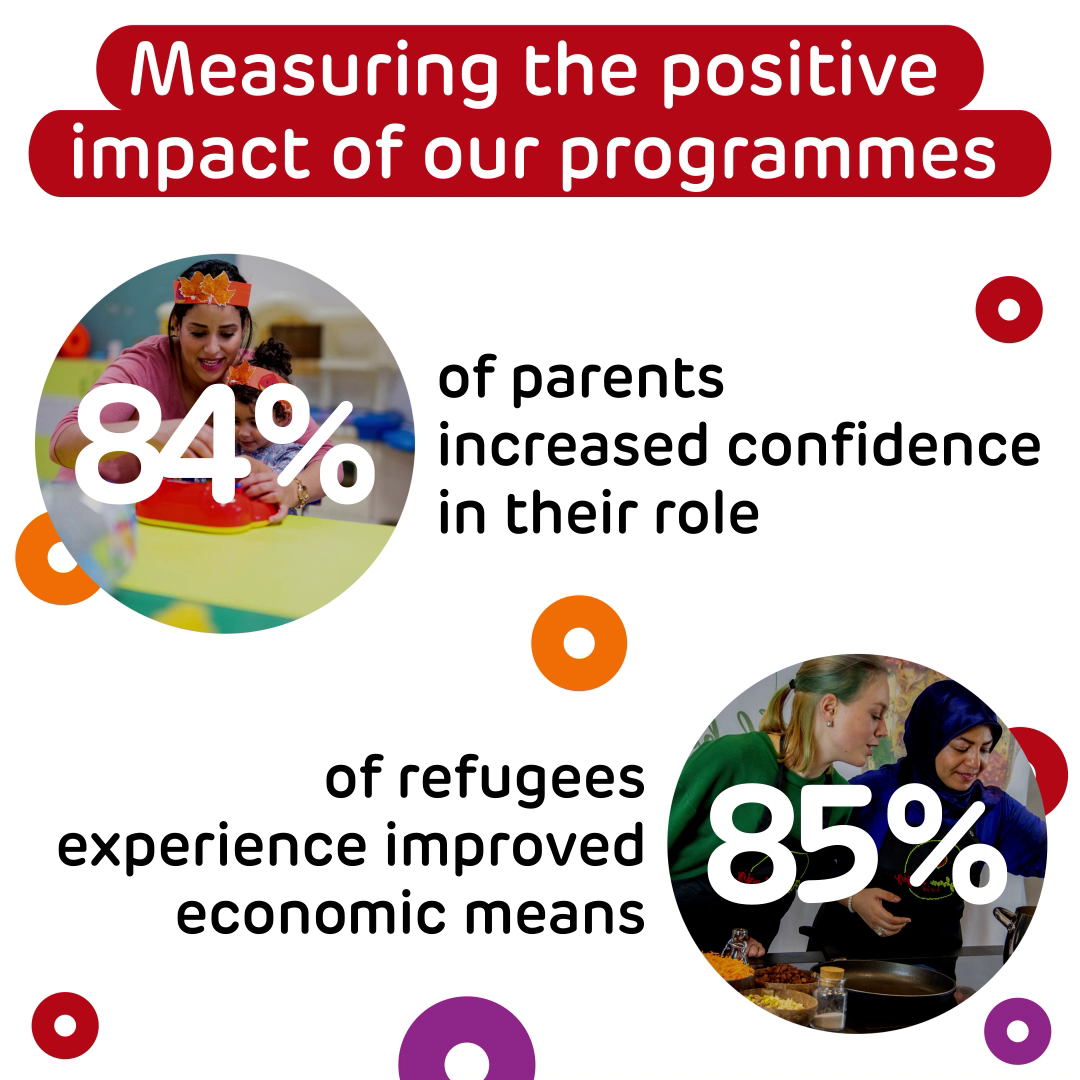
The Human Safety Net’s programmes are having a strong positive impact on parents, children and refugees, according to new data. Our latest results indicates that 84% of parents on the For Families programme enjoy increased confidence in their role, while 85% of participants on the For Refugees programme experience improved economic means.
The measurement system is based on a shared framework which allows partners to report their activities and key project indicators, while taking into consideration local differences. Knowledge, attitudes and behaviour are the three key metrics measured.
The Human Safety Net invests in external evaluation as part of each scale-up impact grant cycle. This enables the establishment of an evidence base for the innovative work of The Human Safety Net’s partners which can be used to benefit the sector at large.
The key goal of the For Families programme is the achievement of greater health and wellbeing for children through improved parental behaviour. New data shows that the programme is achieving significant benefits with 83% of parents showing improved nurturing care skills, 81% spending more quality time interacting with their children and 74% of children having increased opportunities for early learning as a result of the programme. Parents are also given help with managing their own emotions, with 75% reporting improvements in emotional intelligence.
In the For Refugees programme, the key goal is to help refugees overcome obstacles when starting a business or seeking employment, with an end goal of improving economic outcomes and achieving greater financial inclusion for refugees in their new countries. In order to gauge the success of programmes, evaluations measure for knowledge of processes in the host country, attitudes to personal ability and behaviour patterns in taking the necessary steps towards entrepreneurship or employment.
The latest measurements show that 74% of participants have increased awareness of the business start-up process and 82% know more about employment opportunities and pathways. There is also a clear improvement in skills, with 77% of participants equipped with the skills needed to become entrepreneurs, while 75% have the skills to enter the job market.
Book your free entry to the exhibition
